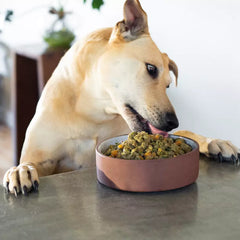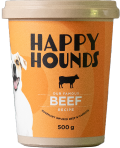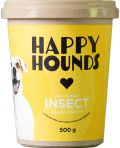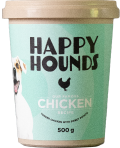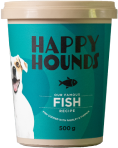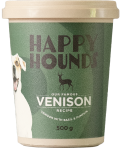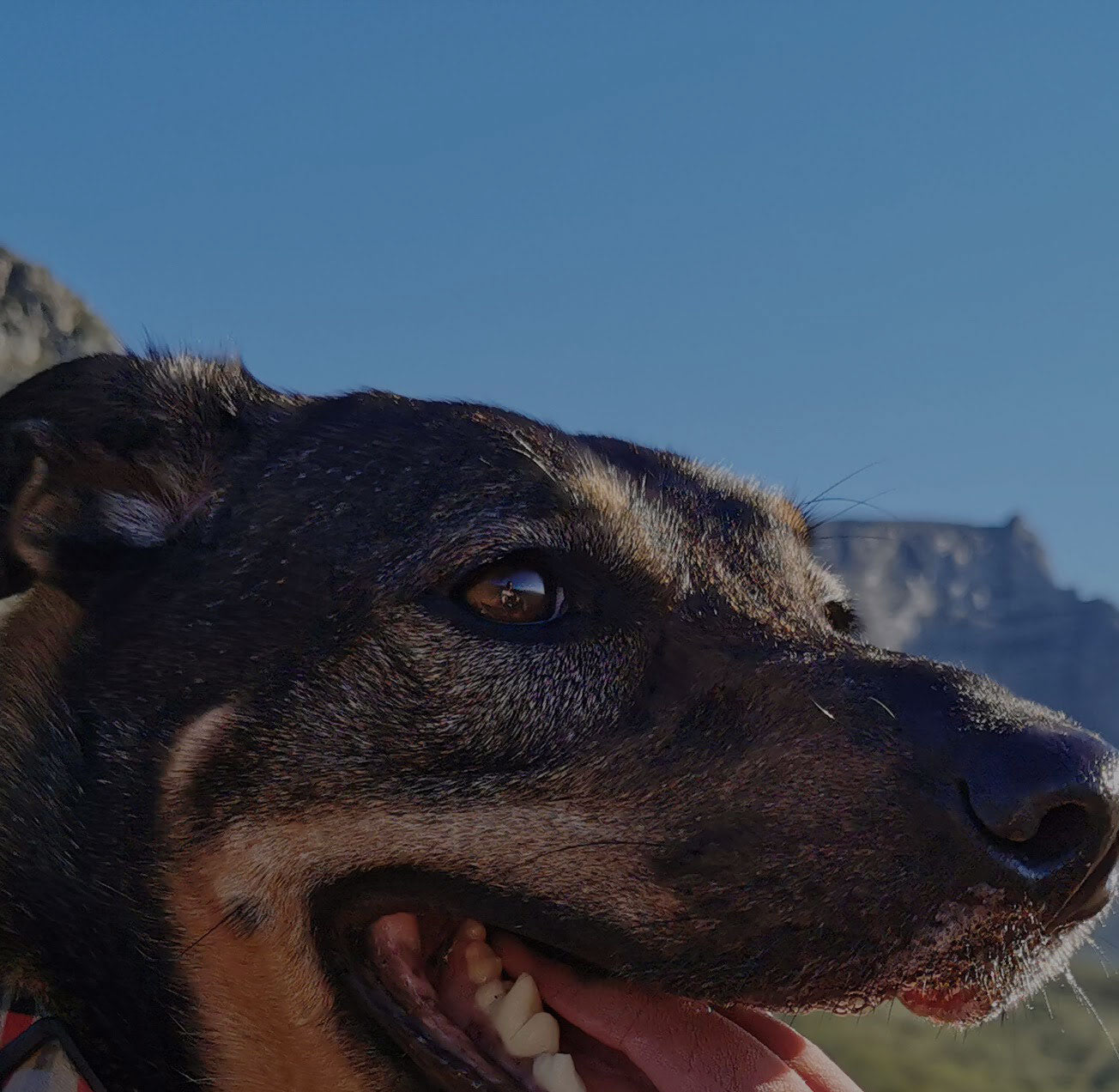Shop
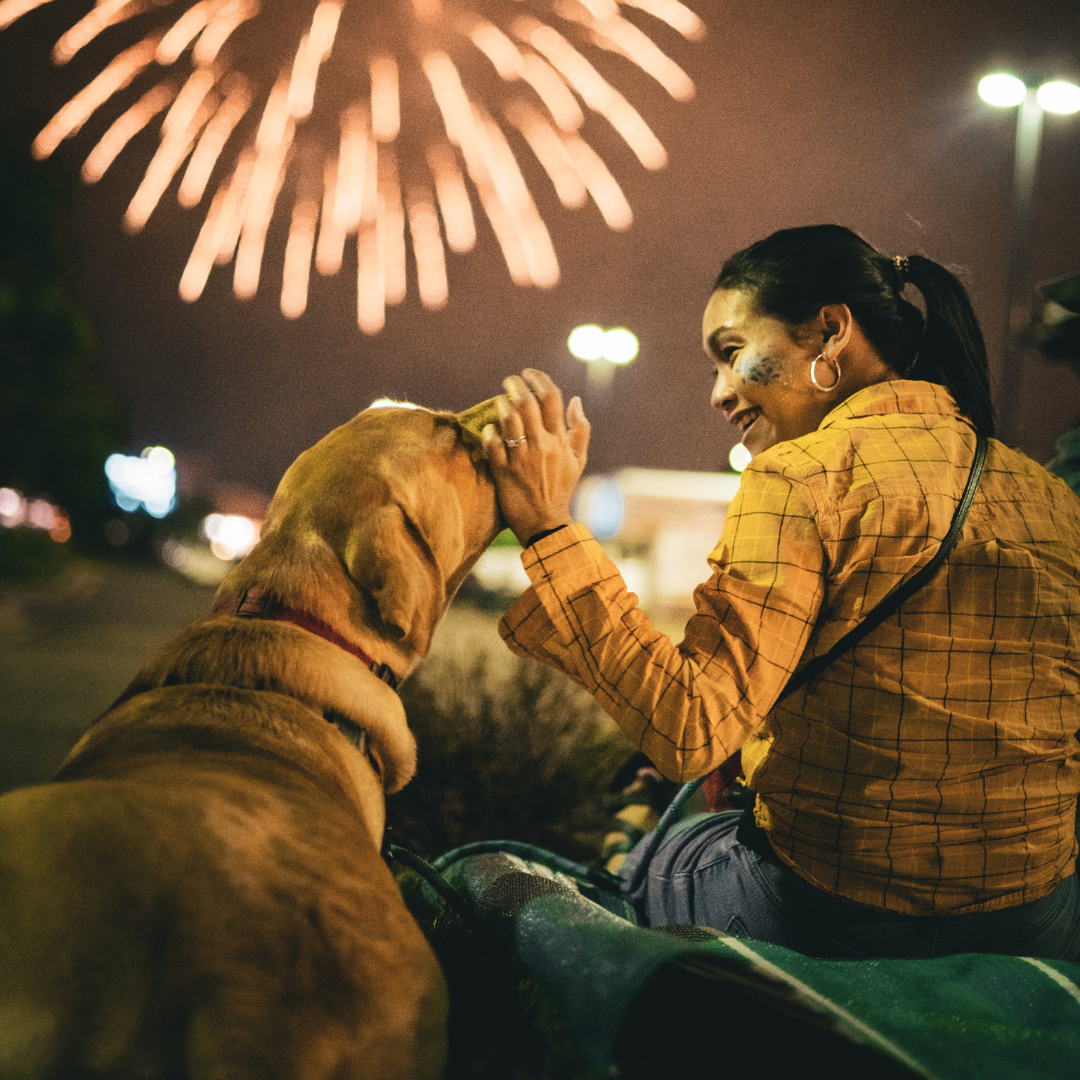
Tips to Keep Your Dog Calm During New Year's Fireworks
December 03, 2024 5 min read
-
Create a safe space
-
Use calming aids for dogs
-
Keep your dog inside
-
Comfort your dog
-
Prepare for next year
The festive season is usually full of fun, relaxation and perhaps some travel. Most of us get a break from work and the chance to celebrate the new year with loved ones. It can also come with a bit of stress too - roads are busy, shops are chaotic, and there can be a lot to organise and prepare. As we navigate the fun and stress of the season, it’s important to remember that our dogs are dealing with it too.
Your dog will probably enjoy the quality time they get to spend with you over the holidays but there are changes that can spark their anxiety, like the discontinuity of their usual routine, additional people or family members in their space, the unfamiliar sounds of parties or large gatherings, and, especially on New Years’ Eve, fireworks.
Dogs can’t anticipate fireworks like we can, and the loud bangs and explosions of light aren’t something they’re familiar with. To better understand and provide comfort to your dog, you can look out for common signs of fear and anxiety…
How dogs react to fireworks
Dogs can react to stressful situations in a variety of ways but typically it may look like this:
- Vocalising. Your dog can bark, whine, cry, whimper, or howl to communicate their distress.
- Panting or drooling. Excessive panting, drooling or lip-licking.
- Neediness. Your dog might be extra clingy and seek attention for comfort. They might follow you around, get under your feet or jump up.
- Hiding. Quiet spaces, like under a bed, behind a couch or in a cupboard, can offer a sense of safety.
- Fleeing. Running away or trying to escape the perceived danger.
- Trembling. Visibly shaking with fear.
- Pacing. Dogs can become restless and agitated in stressful situations.
- Tail between the legs. An expression of feeling threatened or frightened.
- Loss of appetite. As fear responses kick in, your dog can lose interest in food.
- Dilated pupils. Your dog can appear wide-eyed when stressed or scared.
Most dogs have a hard time handling fireworks but here are a few practical tips to help soothe the stress of the occasion…
How to keep your dog calm during new year's fireworks
- Create a safe space
- Use calming aids for dogs
- Keep your dog inside
- Comfort your dog
- Prepare for next year
Before we dive into each of these points, remember that it’s important for you to stay calm as well. While your dog is in a fear response, try to remain composed and avoid overly excitable behaviour that seems unpredictable to them.
1. Create a safe space
Give your dog a safe place to retreat to when they’re overwhelmed. You can prepare the space with items that will help them feel secure and relaxed, like their favourite blanket and toys. It should be comfortable, with a bed, and also as quiet as possible - away from windows where the sound and light of the fireworks are more apparent. You can also keep the curtains closed and the lights on to diminish the flashes. Play calming music or leave the TV on to help calm and distract your dog - it can also mask some of the loud bangs.

2. Use calming aids for dogs
There have been wonderful advancements in how we are able to provide comfort to our dogs during times of stress and they’re especially helpful on loud nights like New Years’ Eve. A variety of these products are available in local stores and can make a world of difference to your pup:
- Pheromone Diffusers. Calming pheromones that mimic those released by mom-dogs that help reduce fear and anxiety.
- Anxiety Wraps. These wraps apply a gentle, consistent pressure to your dog’s body, like a soothing cuddle. They can be worn like jackets and some wraps cover your dog’s ears as well.
- Natural Calming Treats. There are treats and supplements made with chamomile, valerian root, or CBD to help calm anxiety in pets without prescription medication.
3. Keep your dog inside
Keep your dog safely tucked away indoors. This creates a ‘barrier’ between them and the fireworks and encourages them to remain calm. It also prevents your dog from running away if their flee response is triggered. Make sure doors or exits leading outside are closed and your dog is comfortable inside.

4. Comfort your dog
Once you’ve created a safe and calm space inside your home, remember that your dog relies on you for cues and emotional support. Just your presence and proximity can help to reassure them, just as your absence can cause anxiety. Stay close to your dog and model a calm, relaxed demeanour. You can use a soft, gentle voice to talk to them and soothe their anxiety. If your dog is seeking attention, you can gently stroke them and offer affection. Some dogs might prefer to be left alone and it’s important to respect their space. Remember to keep some of your dogs favourite items close by so that you can redirect their focus to a familiar toy or blanket.

5. Prepare for next year
Preparing your dog for fireworks is a long-term commitment but worth it to keep them relaxed and happy. Training your dog for events like New Years’ Eve can begin at any age but the earlier, the better!
Gradual exposure to loud noises can help your dog get used to them and reduce their fear. You can find countless videos of fireworks online and play them for your dog at home - for about 10 minutes at a time and at a low volume to start. Over time you can gradually increase the volume while monitoring your dog’s response. Your dog may be uncomfortable at first, but once they calm down you can offer them a reward. Eventually your dog will be familiar and comfortable with the noises, and even associate them with a positive experience.
If your dog is excessively fearful and often shows the anxious behaviours we mentioned above, you can call on the expertise of a professional. Trainers and behaviourists can offer personalised guidance on how to address the issues that are causing your dog anxiety.
This can take a lot of commitment and patience but your consistency will help your dog manage stressful situations like a champ!
Often we can focus more on keeping our dogs calm and completely forget about ourselves. Remember that managing your stress in unpredictable situations will go a long way in reassuring your dog. Staying calm and using a soft tone of voice can help your four-legged friends immensely in scary situations. We hope these tips have eased anxiety, and you happily ring in the new year with your faithful-friend at your side!



